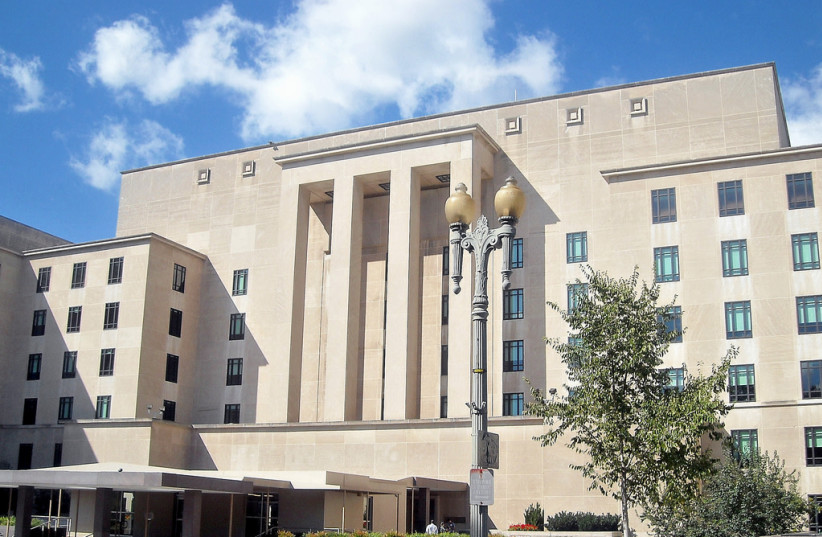WASHINGTON – A US State Department official highlighted on Friday the importance of Israel’s “independent institutions” as a vital part of the country’s “thriving democracy.”
The comment comes on the heels of Israeli Justice Minister Yariv Levin’s newly unveiled plan for judicial reform, although the official did not address the details of the plan nor criticized it directly.
“As a general matter, Israel’s independent institutions are crucial to upholding the country’s thriving democracy, and our shared democratic values are at the heart of our bilateral relationship,” said the official.
“We go to the polls, vote, choose, but time and time again people we didn’t choose decide for us.”
Justice Minister Yariv Levin
Justice Minister MK Yariv Levin at an evening press conference on Wednesday presented his plan for reform of the legal system, which featured changes to key legal principles and institutions that would strengthen the legislative and executive branches at the expense of the judicial branch.
“We go to the polls, vote, choose, but time and time again people we didn’t choose decide for us,” said Levin. He decried what he said was a constitutional crisis and the increasing judicial intervention in government decisions.

Case against Arye Deri's ministerial appointment
Levin chose to present the plan less than 24 hours before the High Court was to hear the case against Shas chairman MK Arye Deri’s appointment as a minister – a highly contentious issue that, if the judges strike down his appointment, would serve as more fodder for Levin to decry judicial intervention.
According to the plan, the makeup of the Judicial Appointments Committee will change in order to give politicians a majority. The nine-person committee’s current makeup includes three High Court justices, four politicians – one of whom is the Justice Minister – and two representatives of the Israeli Bar Association (IBA). There needs to be a majority of at least seven votes in order to approve an appointment.
Levin proposed to replace the two IBA representatives in favor of two more politicians, one from the government and another from the Knesset. This would give politicians a 5-4 majority, but still give the three High Court justices veto power.
Eliav Breuer and Michael Starr contributed to this report.
